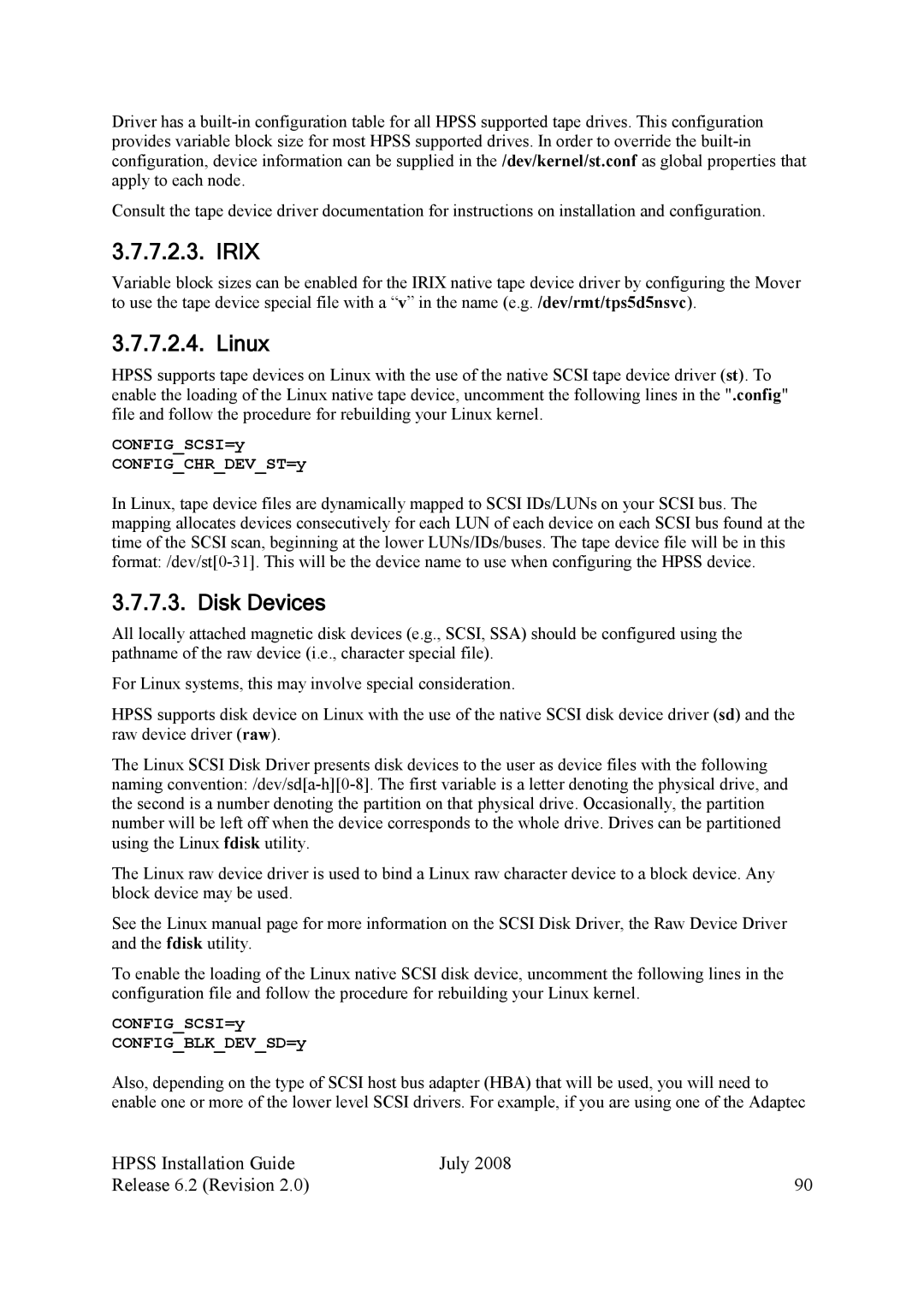Driver has a
Consult the tape device driver documentation for instructions on installation and configuration.
3.7.7.2.3. IRIX
Variable block sizes can be enabled for the IRIX native tape device driver by configuring the Mover to use the tape device special file with a “v” in the name (e.g. /dev/rmt/tps5d5nsvc).
3.7.7.2.4. Linux
HPSS supports tape devices on Linux with the use of the native SCSI tape device driver (st). To enable the loading of the Linux native tape device, uncomment the following lines in the ".config" file and follow the procedure for rebuilding your Linux kernel.
CONFIG_SCSI=y
CONFIG_CHR_DEV_ST=y
In Linux, tape device files are dynamically mapped to SCSI IDs/LUNs on your SCSI bus. The mapping allocates devices consecutively for each LUN of each device on each SCSI bus found at the time of the SCSI scan, beginning at the lower LUNs/IDs/buses. The tape device file will be in this
3.7.7.3. Disk Devices
All locally attached magnetic disk devices (e.g., SCSI, SSA) should be configured using the pathname of the raw device (i.e., character special file).
For Linux systems, this may involve special consideration.
HPSS supports disk device on Linux with the use of the native SCSI disk device driver (sd) and the raw device driver (raw).
The Linux SCSI Disk Driver presents disk devices to the user as device files with the following naming
The Linux raw device driver is used to bind a Linux raw character device to a block device. Any block device may be used.
See the Linux manual page for more information on the SCSI Disk Driver, the Raw Device Driver and the fdisk utility.
To enable the loading of the Linux native SCSI disk device, uncomment the following lines in the configuration file and follow the procedure for rebuilding your Linux kernel.
CONFIG_SCSI=y
CONFIG_BLK_DEV_SD=y
Also, depending on the type of SCSI host bus adapter (HBA) that will be used, you will need to enable one or more of the lower level SCSI drivers. For example, if you are using one of the Adaptec
HPSS Installation Guide | July 2008 |
Release 6.2 (Revision 2.0) | 90 |
